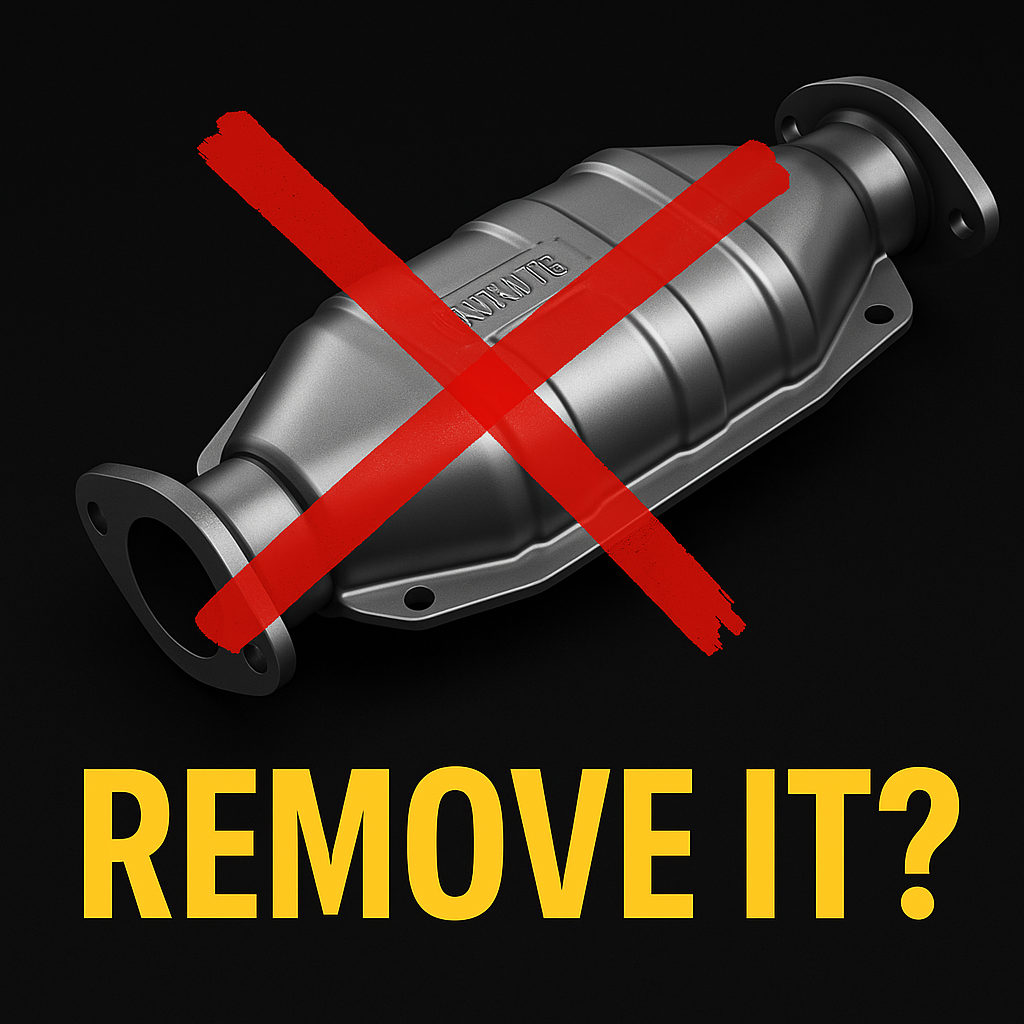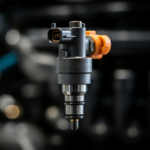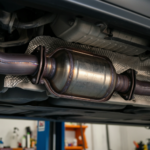Removing a catalytic converter, also known as a “catalytic converter delete” or “cat converter delete,” is a topic that generates a lot of interest among car enthusiasts, DIY mechanics, and automotive professionals. But is it the right move for your vehicle? What happens if the catalytic converter is removed, and are there any risks or benefits? This guide dives deep into the implications of eliminating a catalytic converter, from its effects on engine performance and fuel efficiency to emissions control and potential legal issues. If you’re wondering, “Can you remove a catalytic converter from your car?” read on for answers.
What is a Catalytic Converter, and Why Is It Important?
A catalytic converter is a key part of your vehicle’s exhaust system, responsible for reducing harmful gases emitted by the engine. It uses precious metals like platinum, rhodium, and palladium to convert toxic pollutants into less harmful emissions like carbon dioxide and water vapor.
Without a functioning catalytic converter, your car could release higher levels of carbon monoxide and nitrogen oxides. Plus, your vehicle may fail to meet emissions standards, causing you to flunk a vehicle emissions test—a costly problem in areas with strict environmental regulations.
For a detailed explanation of what catalytic converters do, check out this guide on catalytic converters.
Benefits of Removing a Catalytic Converter
While “cat deletes” remain controversial, supporters highlight these potential benefits:
1. Improved Engine Performance
Removing the catalytic converter can enhance exhaust flow, which might allow for marginal performance gains. By eliminating backpressure in the exhaust system, the engine may operate more efficiently, offering a slight boost in power.
2. Enhanced Sound
A muffled exhaust system with a catalytic converter limits the noise produced by your car. By taking out the converter, higher sound levels and a more aggressive exhaust note can be achieved—an attractive feature for car enthusiasts who love a roaring engine.
3. Reduced Maintenance
Catalytic converters can clog or fail over time, especially as dirt, debris, and unburned fuel accumulate. By eliminating this component, you avoid costly repairs like replacing a damaged converter or a failed oxygen sensor (O2 sensor).
4. Weight Reduction
Catalytic converters are made from heavy materials. Removing them can shed extra weight, benefiting vehicle handling for performance-focused drivers.
Disadvantages of Removing a Catalytic Converter
Before you go ahead with a catalytic converter delete, here are some drawbacks to consider:
1. Legal Consequences
One of the biggest risks is breaking emissions control laws. Many countries, including the U.S., prohibit driving without a catalytic converter, as it violates environmental regulations. Removing your cat converter could result in significant fines if your vehicle fails an emissions test.
2. Check Engine Light Malfunctions
Without a catalytic converter, your check engine light will likely turn on and stay illuminated. This may cause other diagnostic systems in your car, such as the air-fuel ratios monitored by the oxygen sensors, to malfunction.
3. Poor Fuel Economy
Contrary to belief, a catalytic delete can disrupt fuel flow and make the engine less efficient. This could lead to increased fuel consumption, negating any financial benefits from removing the part.
4. Environmental Concerns
Without the converter’s emissions control, harmful pollutants like carbon monoxide and hydrocarbons will be released, contributing to air pollution. This makes driving without a catalytic converter an unsustainable and environmentally unfriendly choice.
What Happens if You Remove a Catalytic Converter?
1. Effects on the Engine
You may notice a slight increase in horsepower since there is less backpressure in the exhaust flow. However, this gain is often negligible unless paired with other performance modifications.
2. Impact on Fuel Efficiency
One key question often asked is, “Does removing a catalytic converter increase fuel consumption?” The answer is yes. Removing the converter can lead to improperly balanced air-fuel ratios, forcing the engine to burn more gas, ultimately leading to reduced efficiency.
3. Noise Levels
A car without a catalytic converter will sound louder due to reduced muffling. For some, this aggressive engine note adds to the driving experience. For others, it may be less appealing.
4. Legal and Compliance Issues
Failing a vehicle emissions test may limit where you can legally drive your car after the converter removal. If you’re considering removing a catalytic converter, check local regulations to understand the legal implications.
Is Removing the Catalytic Converter Worth It?
Deciding whether to take out a catalytic converter depends on your priorities. For casual drivers looking for fuel efficiency and legal compliance, removing a catalytic converter is not a good choice. However, performance-focused car enthusiasts may see minor benefits in specialized racing applications where emissions laws don’t apply.
For a related resource, refer to this guide on identifying a bad catalytic converter.
Frequently Asked Questions
1. Does removing a catalytic converter increase power?
Yes, but the increase is usually minimal unless you pair it with other modifications, like a high-performance exhaust system.
2. Will removing the catalytic converter harm the engine?
Removing the catalytic converter can disrupt your car’s systems if the oxygen sensor and air-fuel monitoring aren’t adjusted. This can lead to long-term engine issues.
3. Can you remove a catalytic converter legally?
It depends on where you live. Most regions have strict emissions standards, making it illegal to eliminate catalytic converters from road-legal vehicles.
4. What is a catalytic converter delete?
A catalytic converter delete is the process of removing the catalytic converter from your vehicle’s exhaust system, bypassing it entirely.
5. Does removing a catalytic converter affect fuel consumption?
Yes. Catalytic converter removal can increase fuel consumption by disrupting the car’s air-fuel balance, leading to inefficiencies.
6. Can I eliminate the catalytic converter myself?
Yes, you can, but you’ll need mechanical expertise, tools, and awareness of legal constraints.
Final Thoughts on Catalytic Converter Removal
Removing a catalytic converter comes with both benefits and risks. While it may offer slight performance improvements, it can also harm fuel efficiency, trigger check engine lights, and create legal challenges. Always weigh the advantages against the disadvantages—and be mindful of environmental factors and emissions compliance.
If your catalytic converter is damaged, replacing it with a new, high-quality converter is often the best route. This ensures your car maintains a balance of performance, eco-friendliness, and legal compliance.
To stay informed about your vehicle’s health, check out this helpful guide on diagnosing catalytic converter issues.










